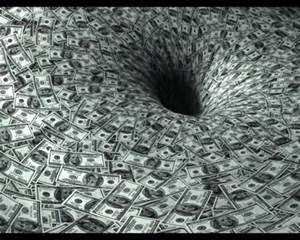You're in escrow and found the house of your dreams and OUCH you get the closing cost estimate from your lender.
The Lowdown on Closing Costs
When you get a mortgage, you will need to pay closing costs, which
are fees – charged by lenders and third parties -- related to the
purchase of the home. So, in addition to owing the lender the down
payment on the home and the principal and interest related to the
mortgage, you will also owe the lender and third parties closing costs,
which you usually pay at the time that you close on your mortgage. Most
of the time, it is the home buyer who pays the closing costs, rather
than the seller, though on some loans such as VA loans, the seller pays a
portion of these costs.
What charges go into your total closing costs?
Closing costs vary widely based on where you live and the property you buy. Closing costs often include things such as:
- A fee for running your credit report.
- A loan origination fee, which lenders charge for processing the loan paperwork for you.
- Attorney’s fees.
- Charges for any inspection required or requested by the lender or you.
- Discount points, which are fees you pay in exchange for a lower interest rate.
- Appraisal fee.
- Survey fee, which covers the cost of verifying property lines.
- Title insurance, which protects the lender in case the title isn’t clean.
- Title search fees, which pay for a background check on the title to make sure there aren't things such as unpaid mortgages or tax liens on the property.
- Escrow deposit, which may pay for a couple months' property taxes and private mortgage insurance.
- Pest inspection fee.
- Recording fee, which is paid to a city or county in exchange for recording the new land records.
- Underwriting fee, which covers the cost of evaluating a mortgage loan application.
 How much will you pay in closing costs?
How much will you pay in closing costs?
Typically, home buyers will pay between about 2 and 5 percent of the
purchase price of their home in closing costs. So, if your home cost
$150,000, you might pay between $3,000 and $7,500 in closing costs. On
average, buyers pay roughly $3,700 in closing costs, according to a
recent survey.
Lenders are required by law to give you a good faith estimate (GFE) of what the closing costs on your home will be within three days of when you apply for a loan. But these are just an estimate, and many of the fees listed on the GFE can legally change by up to 10 percent, potentially adding thousands of dollars to your final closing cost bill. Within a day of your closing, the lender should give you a HUD-1 settlement statement, which outlines closing costs. Compare this to your GFE and ask the lender to explain what each line item on your closing costs is and why it is needed. Often, many of the fees that make up closing costs are negotiable, and some are completely unnecessary, especially things such as high administrative, mailing or courier costs charged by your lender. If the closing costs come in high, you can walk away from the loan; there are plenty of lenders who might be willing to offer you lower closing costs.
Lenders are required by law to give you a good faith estimate (GFE) of what the closing costs on your home will be within three days of when you apply for a loan. But these are just an estimate, and many of the fees listed on the GFE can legally change by up to 10 percent, potentially adding thousands of dollars to your final closing cost bill. Within a day of your closing, the lender should give you a HUD-1 settlement statement, which outlines closing costs. Compare this to your GFE and ask the lender to explain what each line item on your closing costs is and why it is needed. Often, many of the fees that make up closing costs are negotiable, and some are completely unnecessary, especially things such as high administrative, mailing or courier costs charged by your lender. If the closing costs come in high, you can walk away from the loan; there are plenty of lenders who might be willing to offer you lower closing costs.
 How can home buyers avoid closing costs?
How can home buyers avoid closing costs?
You can also avoid upfront closing costs by getting a no-closing cost
mortgage, in which you don’t pay any of the closing costs when you
close on the mortgage. Typically, when a lender offers a deal like this,
it does end up costing you in the long run: The lender may charge you a
higher interest rate on the loan for not paying closing costs, or the
lender may wrap the closing costs into the total mortgage owed, in which
case you end up paying interest on the closing costs. Finally, home
buyers can negotiate with the seller over who pays these closing costs.
Sometimes the seller will agree to assume the buyer's closing costs, but only if it's the right market.
Happy hunting!!
Happy hunting!!









